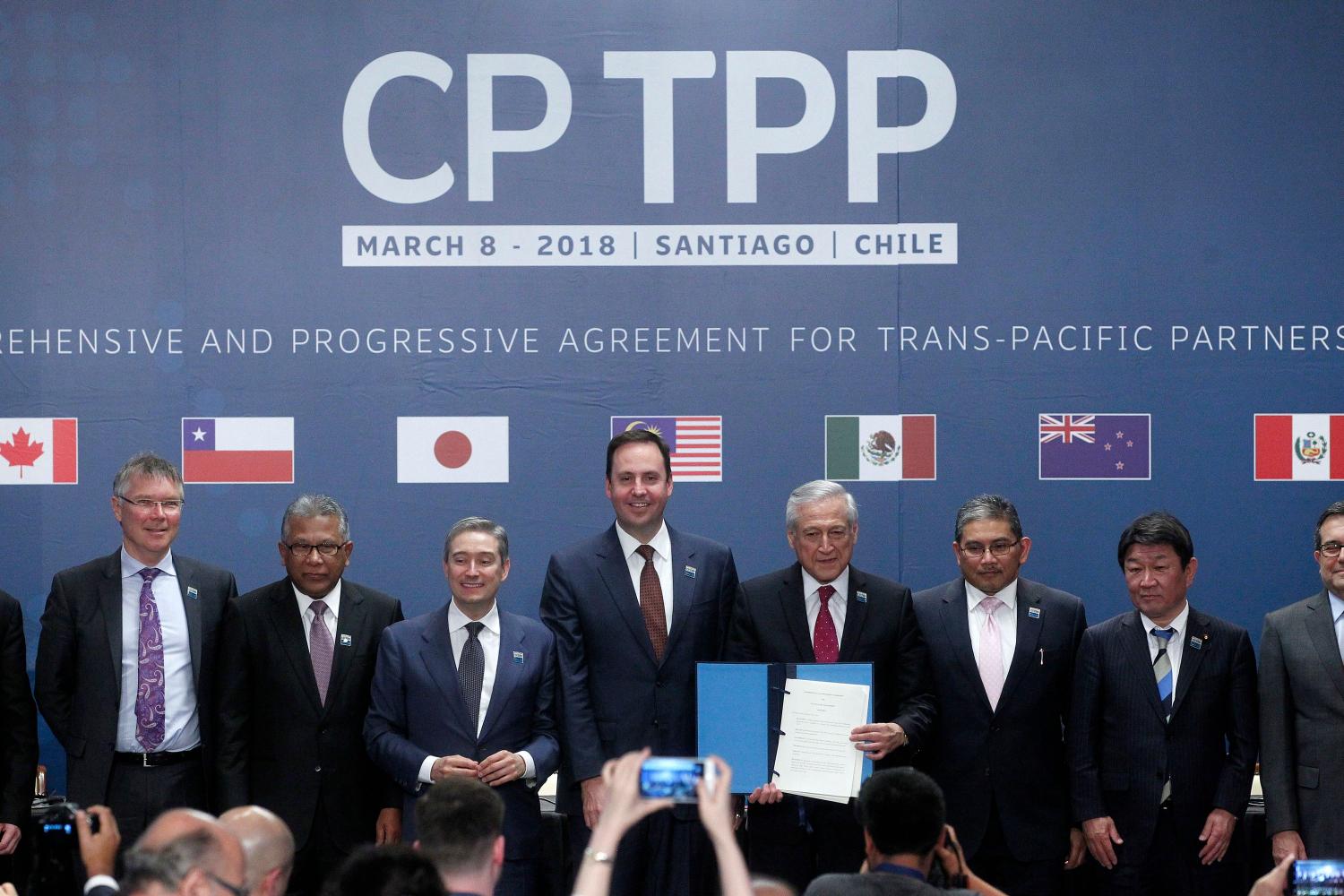Showing 1 - 10 of 17
Only the young can change Thailand
Oped, Thitinan Pongsudhirak, Published on 09/06/2023
» If the past two decades of Thai politics has been about populism and colour-coded conflicts between the yellow-shirted pro-establishment forces against the red shirts aligned with ousted former prime minister Thaksin Shinawatra, the foreseeable future will likely be about structural reforms and a generational clash between the age-old established centres of power against young Thais who are rising up to determine their country's future directions. It is unsurprising that only younger Thais can change Thailand because their old compatriots have too much at stake and too many vested interests in the entrenched and deeply embedded status quo.
The geopolitics of China's CPTPP move
Oped, Thitinan Pongsudhirak, Published on 03/12/2021
» Nowhere is the intersection between geopolitics and geoeconomics more evident than the accession negotiations under the 11-member Comprehensive and Progressive Agreement for Trans-Pacific Partnership (CPTPP). At issue are three new applications for accession by the United Kingdom, China, and Taiwan. While the UK's candidacy alters the geographic crux of what has been Asia-Pacific trade liberalisation, China's and Taiwan's entry efforts represent a proxy showdown between the United States-led global order and 75-year-old alliance system versus Beijing's geostrategic ambitions and objectives.
Regional vaccine approach is imperative
Oped, Thitinan Pongsudhirak, Published on 14/05/2021
» As vaccine diplomacy thrives and vaccine nationalism rears its head, it has become clear that the ideal global solution to the collective action problem of the coronavirus pandemic is for all countries to put their eggs in the same basket. If all countries are forced to rely on the global vaccine alliances' and the World Health Organization's Covid-19 Global Vaccines Access (Covax) plan, whereby any vaccine for one means an available antidote for all, the post-pandemic recovery would arrive faster and smoother with more promising prospects. But short of the ideal solution, the global health system is largely based on self-help, each country mapping its own plan for recovery with a mix of procurement strategies.
Developing by managing demographics
News, Thitinan Pongsudhirak, Published on 27/09/2019
» Once upon a time, it was feared that the earth would become overcrowded and its inhabitants unable to find enough to eat. This fear has not only proved unfounded but it has gone in the opposite direction. What almost every nation fears now is a decline in inhabitants as the birth rate cannot keep up with the longevity of the aged and elderly, imposing unsustainable burdens on working-age segments of the population. Every region is afflicted with this demographic predicament, especially in affluent societies where the birth rate decline is acute, such as Japan.
Politics of regional trade liberalisation
News, Thitinan Pongsudhirak, Published on 20/09/2019
» As multilateral trade negotiations have become unworkable, regional and bilateral alternatives are on the rise. In Thailand's neighbourhood, the most consequential of these trade vehicles is the Regional Comprehensive Economic Partnership (RCEP). As it missed the boat on the Comprehensive and Progressive Trans-Pacific Partnership (CPTPP), Thailand as Asean chair this year should finalise the RCEP expeditiously and find a way to accede to the CPTPP in the near future. Although the Thai political situation remains murky and contentious, there is enough domestic policy consensus on low-hanging fruits, such as regional and bilateral trade liberalisation, that should be reaped without further delay.
Asia at risk of being its own worst enemy
News, Thitinan Pongsudhirak, Published on 31/08/2018
» The broad unravelling of the post-war liberal international system is no longer a matter of dispute. Its manifestations over the past decade from the disintegration of the Middle East as we knew it and the de-integration of the European Union with "Brexit" and anti-migration sentiment to the United States' unilateral turn against openness and liberal values so fundamental to its rise all testify to a murky and portentous international environment. Similarly, the global trading system no longer works like it used to as multilateral trade liberalisation has given way to plurilateral and bilateral free-trade agreements.
Uni rankings, wages need a bigger boost
News, Thitinan Pongsudhirak, Published on 08/06/2018
» The Quacquarelli Symonds (QS) World University rankings for 2018 are out, and the news is again not good for Thailand. Compared to the rest of the world, Thailand's top universities don't stand in good stead. Nor do they rank well compared to their peers in the region.
Thailand amid Asean economic integration
News, Thitinan Pongsudhirak, Published on 11/08/2017
» The first year and a half of the Asean Community has transpired not with a bang but a whimper. Thailand's role in it has been correspondingly uneventful. The first 18 months of the Asean Economic Community (AEC), one of three pillars together with the Asean Political-Security Community and Asean Socio-Cultural Community, witnessed no fundamental or qualitative differences from trade and investment patterns prior to its introduction. If the AEC is to work out as intended, it has to be reshaped and reoriented from traditional lenses to new realities based on intra-regional investments in tandem with global value chains.
Is the Thai-Chinese railway a raw deal?
News, Thitinan Pongsudhirak, Published on 23/06/2017
» Despite repeated assurances to the contrary from the government of Prime Minister Prayut Chan-o-cha, the planned Thai-Chinese high-speed rail continues to attract scepticism. The government's explanation does not add up. Instead, it exposes the weaknesses and ill-effects of using unchecked power under Section 44 of the coup-sanctioned interim constitution, which is somehow allowed under the 2017 charter. In the longer term, the Thai-Chinese railway may end up being a raw deal for Thailand, and many Thais may not look back favourably toward China for it.
Reality sets in three years after the coup
News, Thitinan Pongsudhirak, Published on 26/05/2017
» Three years after it seized power in Thailand's 13th successful coup in 85 years, the government of Prime Minister Prayut Chan-o-cha appears embattled. Growing popular grievances have focused on Thailand's economic doldrums, persistent corruption, intractable polarisation, and a problematic roadmap to return to democratic rule. In addition, a string of mysterious bomb blasts in Bangkok with murky implications has recently undermined the political stability and social calm that the National Council for Peace and Order was supposed to be good at achieving.












